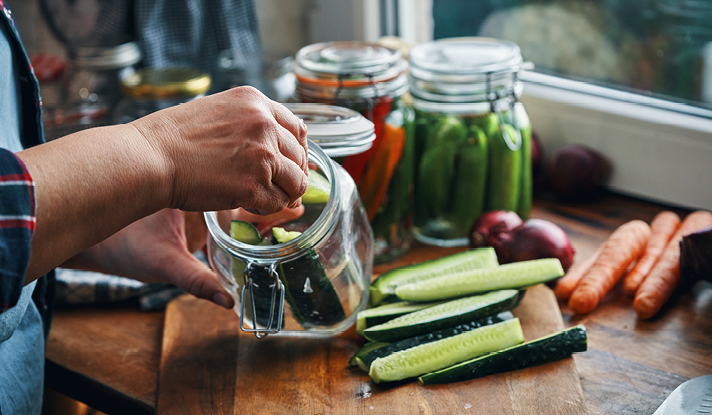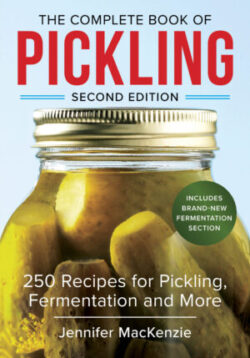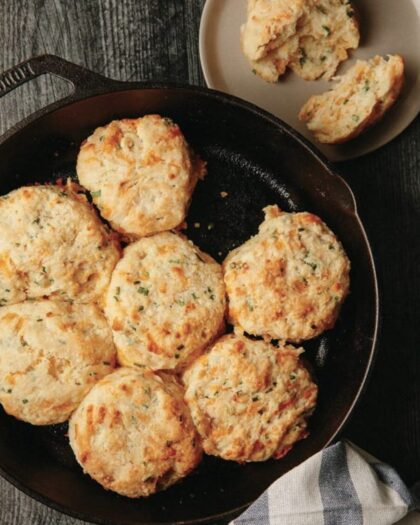
Pickling is far more than a quirky kitchen trend—it’s one of the oldest and most practical ways to preserve food, reduce waste, and add a punch of flavor to your meals. For thousands of years, people across cultures have turned to pickling as a way to extend the shelf life of seasonal produce, enhance taste, and improve digestion.
Today, pickling is making a big comeback—and for good reason. It’s affordable, accessible, and packed with health benefits. Whether you’re a DIY foodie, a gardener with extra veggies, or just curious about fermented foods, now is the perfect time to give pickling a try.
1. Preserve Fresh Produce and Reduce Waste
One of the most practical benefits of pickling is that it allows you to preserve seasonal fruits and vegetables long after their peak. Instead of letting surplus produce go to waste, you can transform it into flavorful, long-lasting pantry staples.
According to the United Nations, nearly one-third of all food produced globally is wasted. Pickling helps reduce this by giving foods a second life, especially when you’re dealing with a big farmers’ market haul or a garden overflow.
2. Boost Gut Health with Fermentation
Many pickled foods are also fermented, meaning they contain probiotics—live beneficial bacteria that support digestive health. These natural microbes help balance your gut microbiome, which plays a major role in everything from digestion and immunity to mood and metabolism.
According to Harvard Health Publishing, fermented foods like sauerkraut and kimchi may improve symptoms of IBS and support immune function.
If you’re interested in trying fermentation, the newly updated edition of The Complete Book of Pickling features an entire section dedicated to safe, beginner-friendly fermentation techniques—a perfect way to explore the health benefits with confidence.
3. Enhance Flavor Without Extra Calories
Pickled foods are a great way to add flavor and texture to meals without piling on calories or fat. Whether you’re adding pickled onions to tacos, pickled beets to salads, or a spicy relish to grilled meats, pickles pack a punch.
And because vinegar-based pickles are naturally tangy, you can often use less salt, sugar, or oil in other parts of your meal. This makes pickling a flavorful, health-conscious choice for any diet.
4. Easy, Affordable, and Beginner-Friendly
Pickling doesn’t require expensive tools or fancy ingredients. With just some jars, vinegar or saltwater brine, and fresh produce, you can start small and scale up as you go. Even better? Most pickles can be made in under an hour—and many don’t require canning or special equipment.
For a deeper dive into pickling basics, safety tips, and creative recipes, The Complete Book of Pickling is a must-have kitchen companion. With 250 recipes, including classics like Kosher Dill Pickles and innovative ideas like White Balsamic and Pepper Pickled Strawberries, this book will inspire beginners and seasoned home preservers alike.
5. Control What Goes Into Your Food
Homemade pickling gives you full control over ingredients, from sugar and salt levels to the type of vinegar and spices used. Store-bought pickles often contain preservatives, artificial colors, or excess sodium—but when you pickle at home, you get to choose what goes in and what stays out.
This is especially important for those following specific dietary guidelines or avoiding allergens. Want low-sodium, sugar-free pickles? You can make them. Want to use organic produce and bold spices? Go for it.
Ready to Start Pickling?
You don’t need special tools or ingredients to begin—just fresh produce, vinegar or salt, spices, and clean jars. If you’re looking for clear, reliable guidance, The Complete Book of Pickling is the ultimate resource. With 250 tried-and-tested recipes, a new section on fermentation, and modern food safety tips, it’s your go-to companion for preserving food with confidence.
Pickling is more than a culinary trend—it’s a sustainable, health-supporting, and cost-effective way to enrich your meals and take control of your food. By learning this timeless technique, you’ll waste less, eat better, and enjoy more flavorful meals every day.
So why wait?
Start pickling today—and let The Complete Book of Pickling be your guide to delicious, homemade preserves.
Learn more here:
Sources:
Image Credit: Getty




